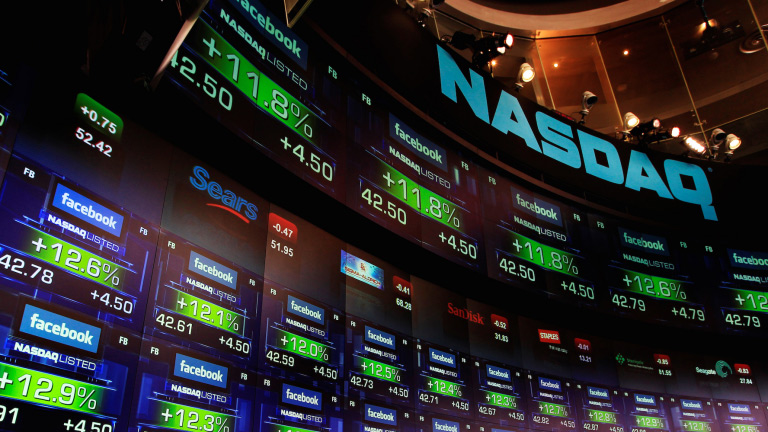A Firstline Securities Limited Blog by: Jody Hernandez
A question we hear ever so often in the financial world is “how is the market performing today?” Investors and analysts use market index numbers to get an idea of the daily movements of the market. So what exactly is an index? Let’s look at what these indices represent and how we can use them to gauge stock market performance.
An index is a statistical measure that represents the value of a group of stocks: it is computed from the prices of selected stocks. An index gives investors an indication as to how the group of stocks it represents is performing. There are different ways of calculating an index number and it is important to understand how the index is calculated in terms of the weighting of the stocks it represents and to remember that the numbers represent a change from an original base value. The number is not of the most importance – it’s the percentage change over time that gives an indication of market performance.
There are two main ways that indices are calculated. The price weighted index and the market value weighted index.
A price-weighted index is an index in which the member companies are weighted in proportion to their price per share. For example, assuming that an index only has two stocks, one priced at $5 and one priced at $10, this index would comprise approximately 33 per cent of the $5 stock and 67 per cent of the $10 stock. However, not many indices are price-weighted. Popular price weighted indices are the Dow Jones and the Nikkei.
Dow Jones Industrial Average
The first stock market index ever created is the Dow Jones Industrial Average (DJIA), more commonly known as “The Dow”, back in 1896. At that time, the index covered only twelve stocks, however, today the Dow tracks the performance of thirty of the largest and most influential public companies in the United States.
Nikkei (Japan)
The Nikkei, short for Japan’s Nikkei 225 Stock Average, is a price-weighted index and is the most respected index of Japanese stocks. The Nikkei includes the top 225 blue-chip companies on the Tokyo Stock Exchange and is even considered to be Japan’s version of The Dow.
A capitalisation-weighted (or “cap-weighted”) index, also called a market-value-weighted index is a stock market index whose components are weighted according to the total market value of their outstanding shares. Market capitalisation or “market cap” measures a company’s size and is calculated by multiplying the company’s outstanding shares by the current stock price per share. If stock A has a market cap of $100 million and stock B has a market cap of $30 million, assuming that there were no other stocks in the index calculation, in a market-weighted index, stock A would represent approximately 77 per cent of the value of the index. Weighting by market capitalisation thus gives more importance to larger companies which consequently would have a greater impact or influence on the index. Well known market value-weighted indices are the Standard & Poor’s 500 Index, Nasdaq Composite Index and the FTSE 100.
Standard & Poor’s 500 Index
The Standard & Poor’s 500 Index (S&P 500) tracks 500 of the most widely traded companies in the U.S. economy and for this reason it is considered a better indicator of overall market performance than the Dow, which only tracks thirty companies. While the S&P 500 is a more reliable indicator of the market’s overall status, one drawback is that the top 50 companies comprise 50 per cent of the index’s value and hence have a greater influence on the index’s price movement.
Nasdaq Composite Index
The Nasdaq Composite Index covers all of the companies, more than 5,000 that trade on the Nasdaq stock market. While this index does encompass companies from a variety of industries, it mostly targets technology and internet-related stocks. As such, the Nasdaq is not intended to be representative of “the market” but is particularly beneficial to technology investors.
FTSE-100 (United Kingdom)
The FTSE-100, usually referred to as the “Footsie”, includes the top 100 public companies in the United Kingdom. The index is maintained by the FTSE Group, a now wholly-owned subsidiary of the London Stock Exchange.
The Trinidad and Tobago Stock Exchange (TTSE) is the main stock exchange in the Republic of Trinidad and Tobago, and the largest stock exchange in the Caribbean region by market capitalisation.
In Trinidad and Tobago, there are two Indices: the Composite Index and the All T&T Index.
The Composite Index
The Composite Index collectively measures the price movements of all of the companies on the Trinidad & Tobago Stock Exchange. This would include several companies from Barbados, Jamaica, and the Eastern Caribbean Securities Exchange and is calculated using the current aggregate market value as a per cent of a base aggregate market value which was established in January 1983.
All T&T Index
The All T&T Index however, measures the price movements of listed companies that are registered in Trinidad & Tobago only. To calculate the All T&T Index, the market value of the non-sector companies and the market value of the cross-listed securities are deducted from the current aggregate market value. The end total is then expressed as a per cent of an All T&T base aggregate market value.
*
Indices do not necessarily represent what’s happening in the entire market: they can be skewed by large companies with significant market capitilisation. Indices react to actual trades and provide a better historical perspective than forecasting service. They can be especially helpful when viewed over a long period in spotting trends.
For further information, feel free to contact us at info@firstlinesecurities.com or give us a call at 1 (868) 628 – 1175.



